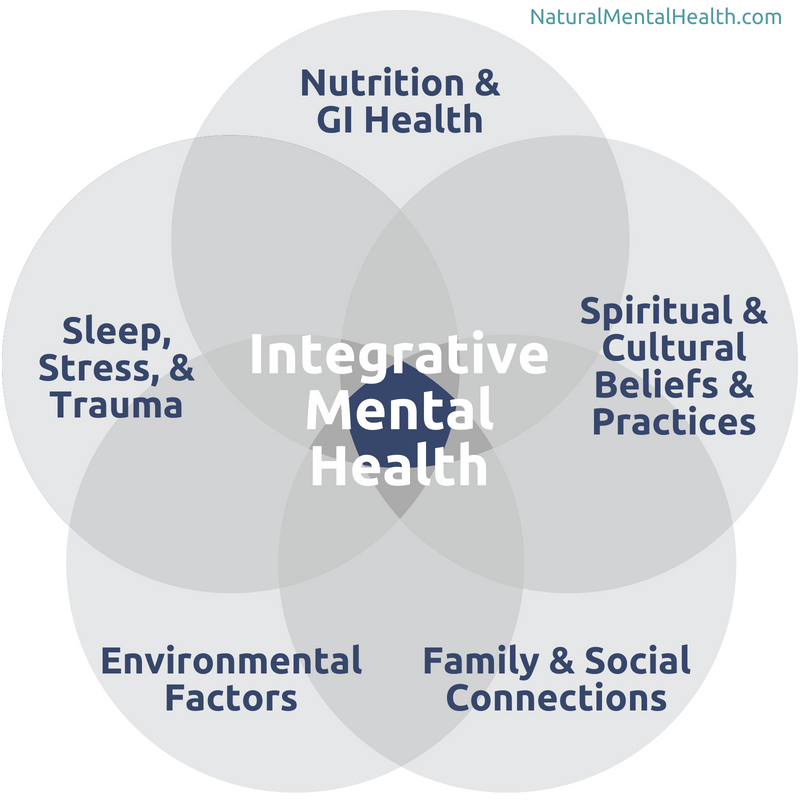
What Is Integrative Mental Health?
Jul 31, 2018Though integrative mental health is becoming a more buzz-y term, it's something our NMH team has been doing for decades. The term “integrative” mental health typically refers to a novel approach to treatment that differs from the traditional biomedical approach in the following ways:
- Works with lifestyle factors like diet, movement, and stress to address potential underlying causes of illness.
- Blends conventional and complementary treatments to address symptoms in the most effective way without rigidly adhering to certain paradigms.
- Combines a combination of approaches that includes various modalities like psychotherapy, traditional Chinese medicine, nutrition, and body work.
Many factors influencing mental health must be addressed for more lasting and meaningful healing. See below for the interacting factors that make up our Integrative Mental Health Model.

At NMH, we seek to expand upon this understanding of integrative mental health by adding further breadth and depth and by creating new models that help bring greater orderliness, clarity, and elegance to the field.
Our working definition of integrative mental health is ”a common sense, coherent blending of life-giving science, skills, and practices that honor the full human condition and help make it optimally healthy, resilient, and whole.”
Our core principles of NMH integrative mental health include:
- There is a blending or weaving together of the most helpful information and practices from all reliable sources.
- We seek to design coherent models of integration (e.g. the resilience model for preventing or treating depression) and to communicate them in simple, elegant ways.
- We focus on strengths and resources rather than pathology. We partner with people who are suffering and encourage them to see their innate health while also help them to improve their inner capacity for resilience (i.e. to “enlarge their container”).
- Our approach is embodied in the whole person: body-mind-heart-soul are inseparable aspects of who we are as human beings.
- We begin with the body and honor its wisdom. There is a logic to the body: a “bio-logic”, that can help connect the dots to the source of imbalance.
- We are not afraid of the distressed mind. Emotional and psychological symptoms are valued as the “trailhead” to greater wellbeing and inner growth.
- Meaning, purpose and the life of the soul/spirit/heart are integral parts of our approach (and often left out of integrative models).
- We claim, with humility, the most optimal and life-enhancing goals—vitality of body, radiance of mind, love of heart, joy of spirit.
Want to put this integrative approach into action to boost your resilience? Take our Resilience Quiz and discover your Resilience Type.
RELATED ARTICAL
What Is Integrative Mental Health?
A bit of understanding of brain chemistry can help you create a healthy, well-functioning brain and a good, sustainable mood. Read more.








